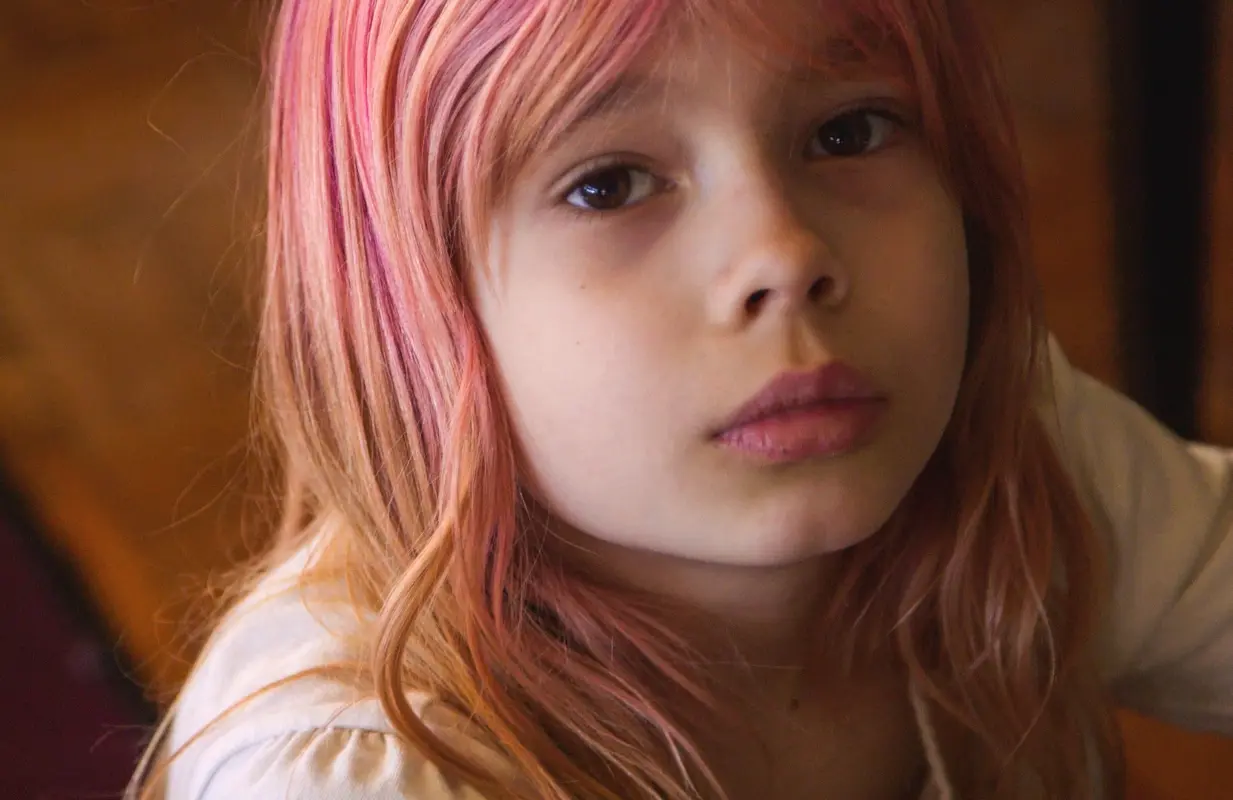HBO's Transhood Captures the Struggles of Transgender Kids
-
 Seven year-old Avery is one of four kids profiled in Transhood. (HBO)
Seven year-old Avery is one of four kids profiled in Transhood. (HBO)Hard to believe it was only four presidential campaigns ago that the GOP turned same-sex marriage into a wedge issue and helped ensure George W. Bush’s re-election. Since then, there’s been a sea-change in public opinion, followed by states blessing civil unions/gay weddings and the Supreme Court legalizing same-sex marriage in 2015 — a decision watched with hopefulness by transgender people and their advocates.
But the good feelings from that win have not carried over to transgender rights, an agenda that involves multiple and, arguably, more uncomfortable asks than same-sex marriage proponents were making. The makeup of the Supreme Court has changed, as you may have heard, and the relatively small transgender population makes the battle for hearts and minds that much more daunting.
Sharon Liese, in her excellent new HBO documentary, Transhood, could be seen as an amplifier for transgender people by getting viewers to see things through their eyes. The old “film as empathy machine” thing. But Liese, it turns out, has done her job all too well, with the result that Transhood is less of an advocacy film than it is a raw, unflinching look at the emotional toll that is taken not just on transgender children, but the families they’ve come out to.
In Transhood, Liese returns to the multi-year storytelling form that served her so well in her two series of High School Confidential for WEtv. Over five years her crew followed four children from the Kansas City area, ages 4 to 15, who had identified as other than their given gender. (The title seems to be a play on Richard Linklater’s Boyhood, which was also shot over several years.)
They range from the tall, confident Leena, a teenager surrounded by supportive family members — including a lovable grandmother who says, “Oh, I’m fine, you’re still my grandchild,” but draws the line at tattoos — to Jay, a tender 12-year-old who has never told the kids at his new school about his identity switch and whose mother, Bryce, has been disowned by her family. “My mother thinks I’m a child abuser,” Bryce says, adding, “I’d rather have a healthy son than a suicidal daughter.” Given Jay’s sensitive nature, this doesn’t seem like an overstatement.
Phoenix is just four years old when we first meet her, identifying as a “girl-boy.” And then there’s Avery, a seven-year-old firecracker whose boldness put her on the front page of the local newspaper, followed three years later by the cover of National Geographic. Yet behind the confident pose is a kid who seems to be missing out on the fun of being a kid. Avery is chosen as the grand marshal of the local pride parade, but decides to back out after a visit from the FBI following the Pulse nightclub shooting. Did you have to explain the Pulse nightclub shooting to a child?
With production support from Bunim-Murray Productions (the Real World folks), Liese condenses four stories and five years into a tight hour-and-a-half of unexpected twists and turns. If nothing else, you’ll come away from Transhood with two myths busted. One is that kids change genders because their parents are too permissive and expose them to ideas from the liberal media. In all four cases, the children made their decisions at a very young age, then stood their ground. They and/or their families had ties severed by other family members or peers at school. Even bold, assertive Leena gets her heart broken. Year after year, Liese and her crew keep checking in, and year after year, the struggle is real.
The other myth is that a person isn’t really transgender until the operation. “Children before puberty do not have surgery,” says Avery’s mom Debi Jackson, who founded a support group for transgender families. “Before puberty, it is a social transition.” And, as I just noted, that transition cuts deeper than any surgical procedure. From an advocacy viewpoint, though, I can see skeptics wondering if transgendering is just a thing kids do to get attention or get love. The fact that three of the four families in Transhood are themselves rather fluid — one set of parents is divorced, another breaks up during filming, and a third, a single mom, decides to marry another woman — has the unintended effect of underscoring this point.
For what it’s worth, I don’t see it that way. We’d all benefit from ending discrimination against transgender people in the workplace, the healthcare system, the bathroom, and everywhere else. But getting there, as a society, that’s the hard part. Coming out to loved ones was what changed the discussion for same-sex marriage, but Transhood suggests that for transgender people and their families, it’s only the painful start.
Transhood airs on HBO November 12 at 9:00 PM ET.
Aaron Barnhart has written about television since 1994, including 15 years as TV critic for the Kansas City Star.
TOPICS: Transhood, HBO, HBO Max